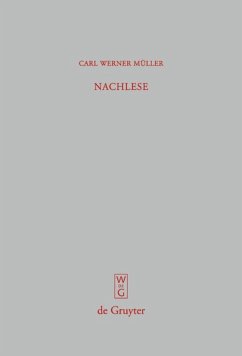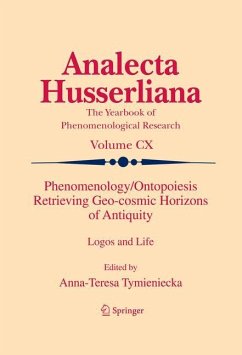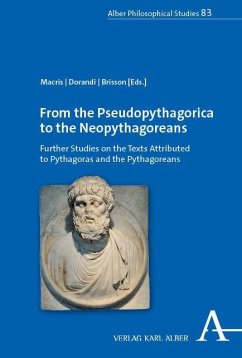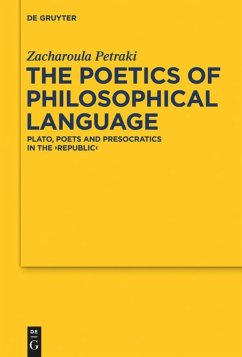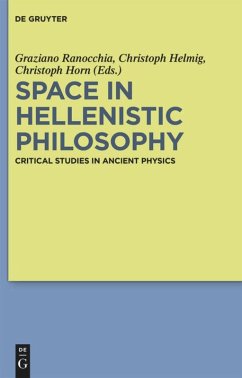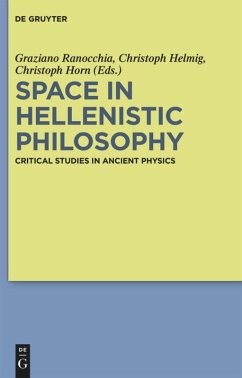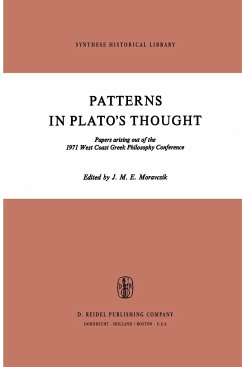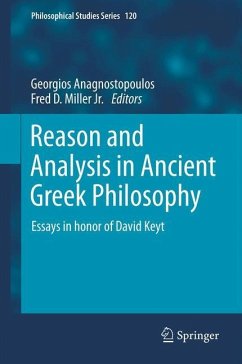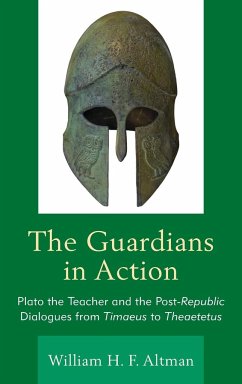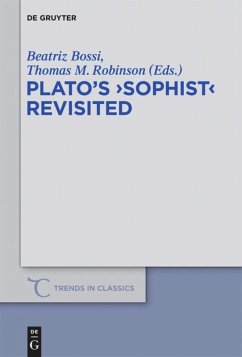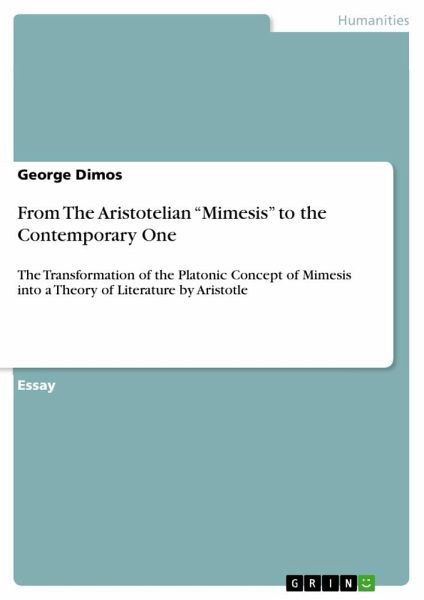
From The Aristotelian "Mimesis" to the Contemporary One
The Transformation of the Platonic Concept of Mimesis into a Theory of Literature by Aristotle

PAYBACK Punkte
0 °P sammeln!
Essay from the year 1990 in the subject Philosophy - Philosophy of the Ancient World, , language: English, abstract: This text was written in 1990 and presents evidence for a possible transformation of the Platonic concept of mimesis into a theory of literature by Aristotle. In addition it presents the basic aspects of the Aristotelian method as evidenced in his work 'Poetics'. It also examines the way in which the contemporary literary criticism conceptualises mimesis. When dealing with the "Poetics" of Aristotle, we can select (as a tool through which we will better analyse the concept of li...
Essay from the year 1990 in the subject Philosophy - Philosophy of the Ancient World, , language: English, abstract: This text was written in 1990 and presents evidence for a possible transformation of the Platonic concept of mimesis into a theory of literature by Aristotle. In addition it presents the basic aspects of the Aristotelian method as evidenced in his work 'Poetics'. It also examines the way in which the contemporary literary criticism conceptualises mimesis. When dealing with the "Poetics" of Aristotle, we can select (as a tool through which we will better analyse the concept of literature which he has produced) between the analysis of some standard - basic concepts which are found in his treatise; for example the concept of hamartia, the concept of katharsis, the concept of simple and complex tragedy, the concept of mimesis or to analyze the tragic character as it is presented in Aristotle. I chose to use the concept of mimesis since, it is a more technical concept (or at least semi-technical) and in this way it is more related to the technical analysis of the contemporary literary criticism. I also chose this tool in order to check if the theory of mimesis in Aristotle and in Plato coincide or not (some authors take it as synonymous). The text is divided into six parts. - The first part will deal with a fictional presentation (view) of when the concept of imitation first appeared. - The second part I will deal with the duplicity of the 'mimeisthai' in Plato's works. - In the third part I will present two basic differences in the way Aristotle and Plato conceive the concept of mimesis . - In the fourth part I'll deal with the basic concepts of Aris-totle's method (formal analysis). - In the fifth part I will examine the concept of pleasure in Aristotle's Poetics. - The sixth part will deal with theories which tried to bring something of the technicalities and the spirit of the Aristotelian analysis in our century. I will also present the modern schools of literary criticism which make much of what Plato disqualifies in mimesis: the mask, the disappearance of the author, the simulacrum, anonymity, apocryphal textuality and so on.




